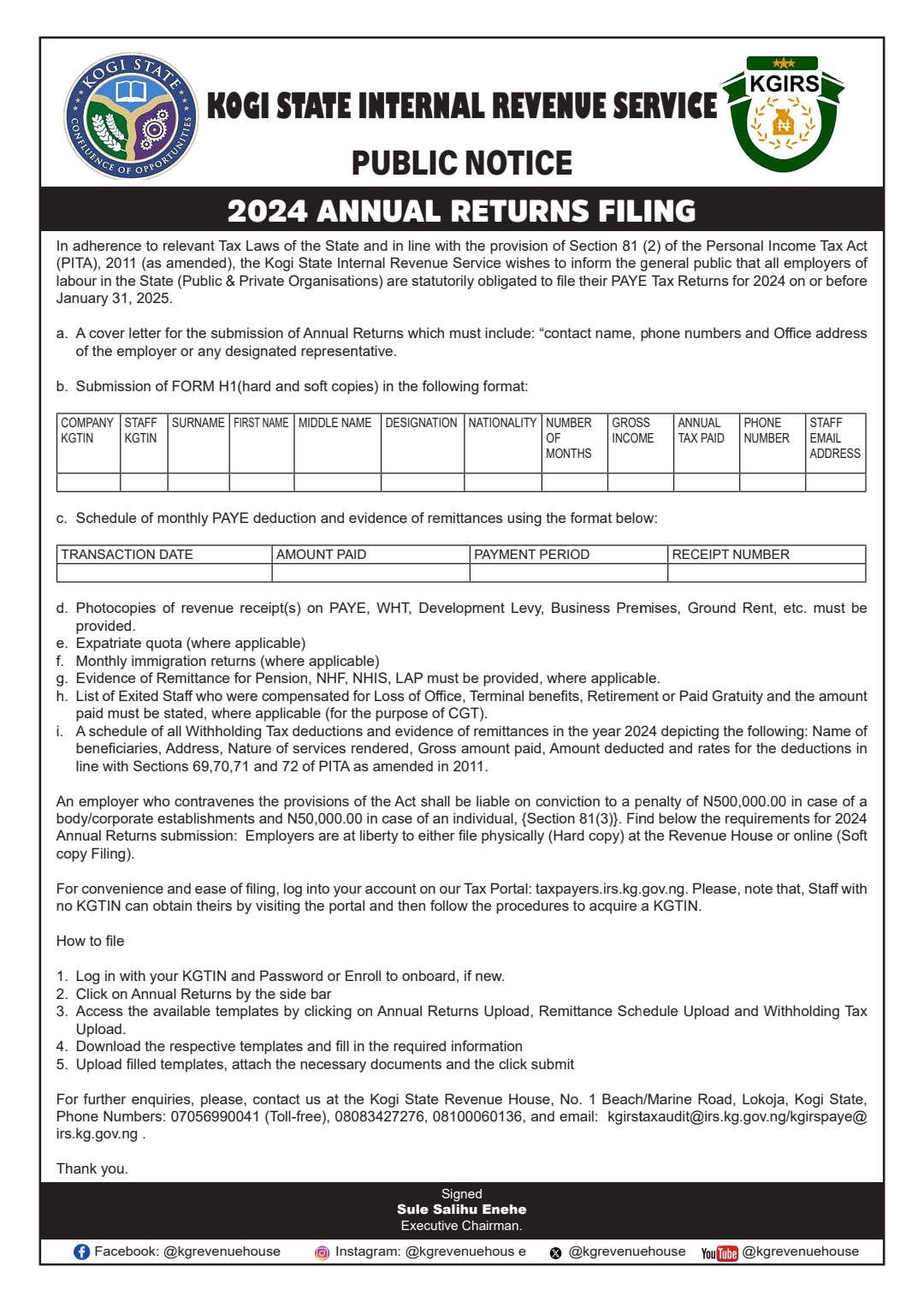

By Dada Ahmed.
(News Analysis)

In December 2024, the Senate of the Kogi State-owned Confluence University of Science and Technology (CUSTECH), located in Osara, Central Senatorial District, announced its admissions for a new academic session. This development brought immense joy to students across Kogi State and beyond, who saw it as a golden opportunity to fulfill their educational aspirations.
For parents and guardians, it is a chance to support their children in attaining the knowledge needed to contribute meaningfully to Kogi State’s and Nigeria’s socio-economic, political, and scientific advancement.
As the students, some accompanied by their parents or guardians, trooped, enthusiastically to CUSTECH for registration, they were unexpectedly met with a significant stumbling block: the mandatory requirement to present a Tax Clearance Certificate (TCC) of their parents or guardians as part of the registration process.
This sudden requirement led to widespread confusion and disappointment, with many students returning home without completing their registration. The situation caused parents and guardians to express their frustration and concern, taking to the media to plead with the state government to reconsider the policy. They appealed for an opportunity to register their wards without immediate TCC presentation, promising compliance in due course.
Governor Ahmed Usman Ododo swiftly responded to the outcry, demonstrating a hallmark of responsive and responsible governance. He ordered that the TCC should no longer be a requirement for students’ registration in Kogi State-owned higher institutions, thereby removing the obstacle and ensuring that educational opportunities remained accessible to all eligible students.
The Executive Chairman of the Kogi State Internal Revenue Service (KGIRS), Alhaji Salihu Sule Enehe, announced the governor’s directive during a media chat with journalists in Lokoja on January 15, 2025. He emphasized, however, that parents and guardians must still fulfill their tax obligations, warning that tax evasion attracts penalties, including fines and imprisonment of up to six months.
To many parents and guardians,yhis intervention by Governor Ododo exemplifies his administration’s commitment to fostering equitable access to education while maintaining a balance in civic responsibility.
It also highlights the government’s dedication to addressing citizens’ concerns and removing barriers that hinder development, reinforcing its focus on responsible governance for the collective good of Kogi State.
Idris Miliki Abdul, Executive Director of Conscience for Human Rights and Conflict Resolution (CHRCR) in Lokoja, Kogi State, described the state government’s decision to reverse its stance on the ax clearance certificate requirement for student registration at higher institutions in the state as a positive development.
He emphasized that the government exists to serve the people, and, as such, its policies should reflect the genuine welfare and well-being of the citizens.
Miliki, however,called for a comprehensive review of the tax laws in Kogi State, in collaboration with relevant stakeholders.
He advised the state government to establish industrial institutions capable of generating employment and substantial income for the state, without placing undue tax burdens on its citizens.
Ahmed publishes The Reporters.
ahmeddada008@gmail.com

